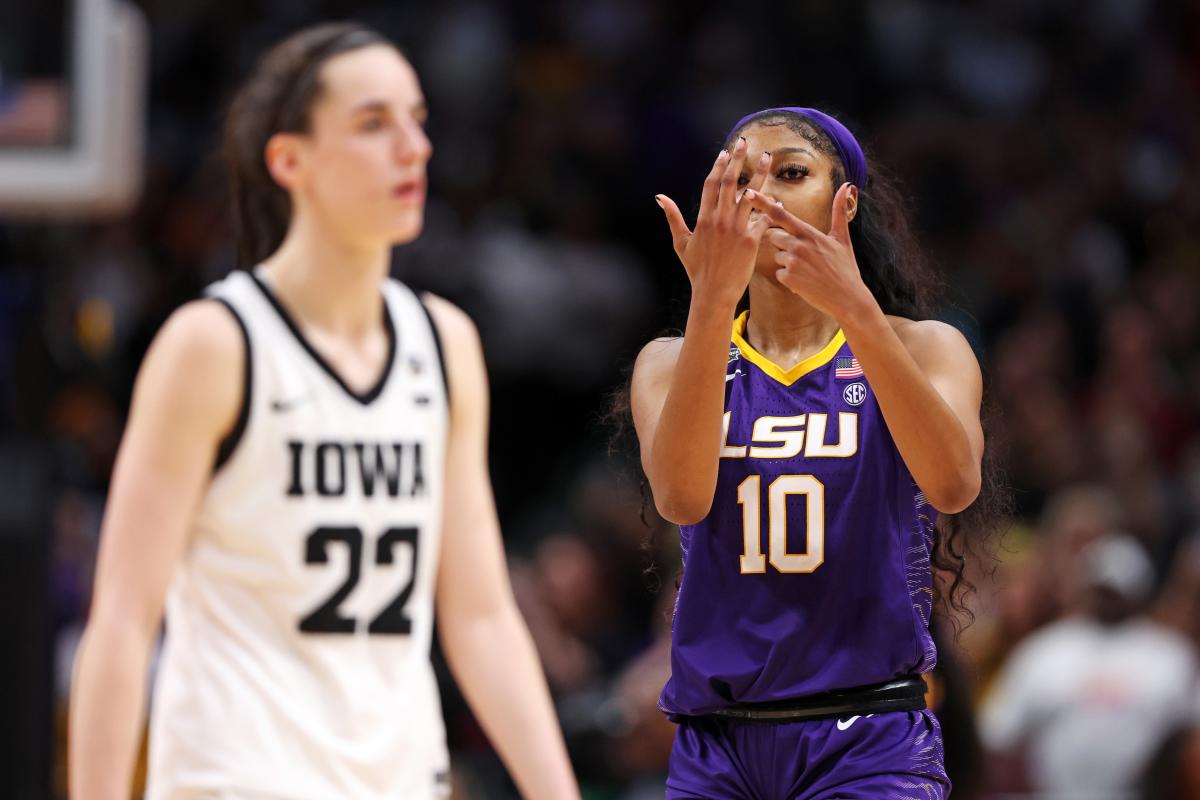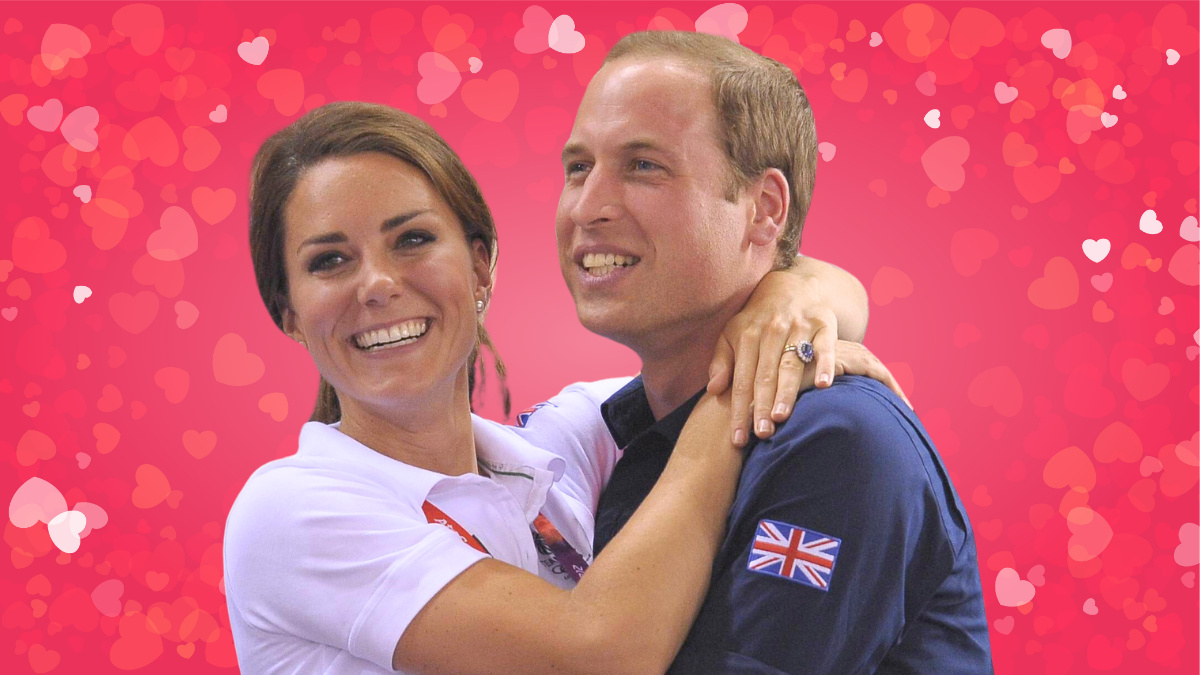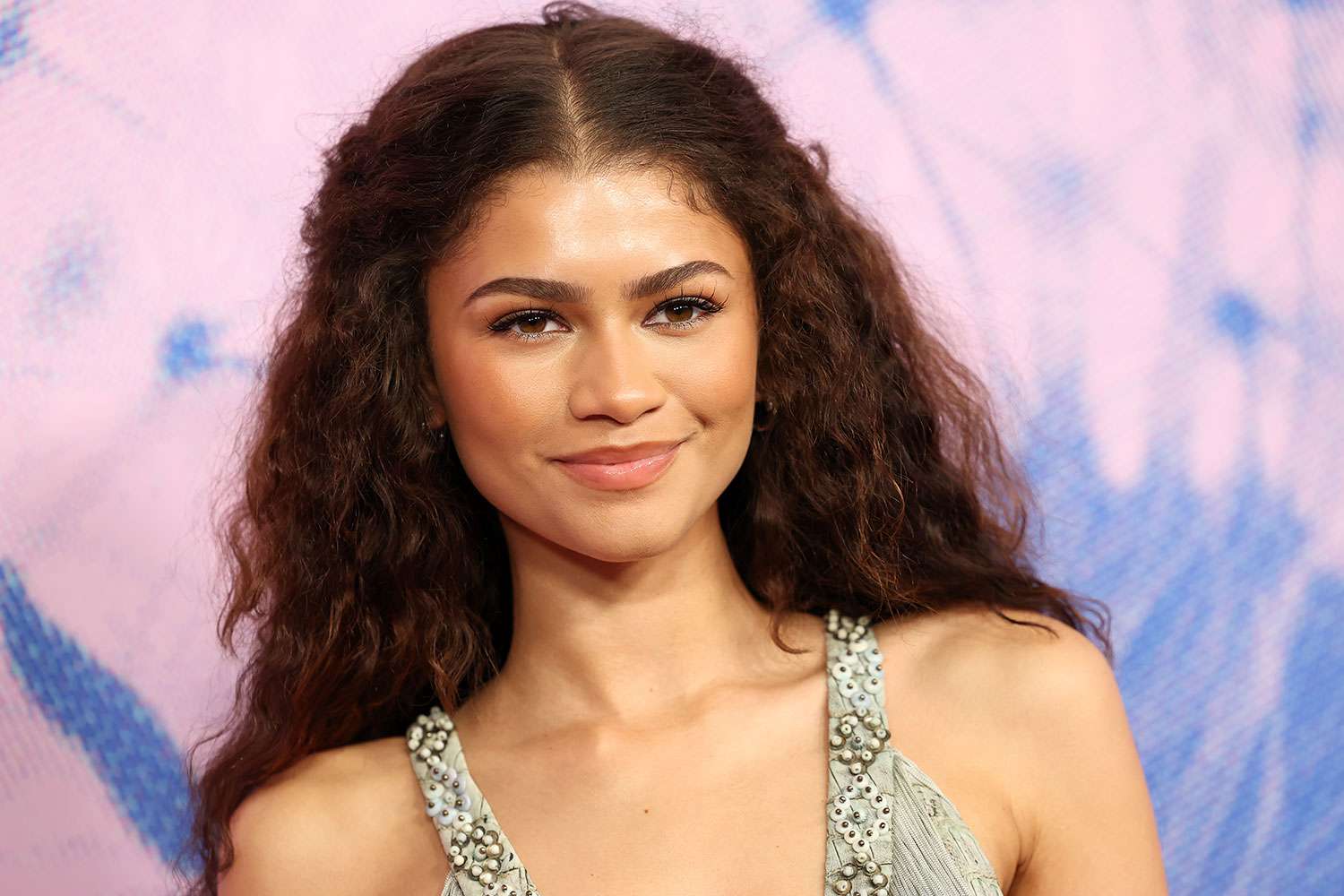In this op-ed, writer Mikeisha Dache argues why LSU basketball star Angel Reese does not need to apologize to Iowa’s Caitlin Clark, and emphasizes the importance of Black women athletes showing up as their authentic selves despite enduring racist remarks and double standards.
On April 2, the Louisiana State University women’s basketball team won the NCAA National Championship — making history and securing not only the first LSU women’s basketball title, but the first basketball title in the history of LSU.
As the clock wound down in the 4th Quarter, forward Angel Reese began to celebrate the win, repeatedly pointing to her ring finger where she and her teammates previously wore Sharpie-drawn bands, a manifestation of the championship rings they were competing for. Reese followed up by mimicking Iowa guard Caitlin Clark’s “you can’t see me” gesture, which Clark originally aimed at Louisville’s Hailey Van Lith during their Elite Eight matchup on March 26.
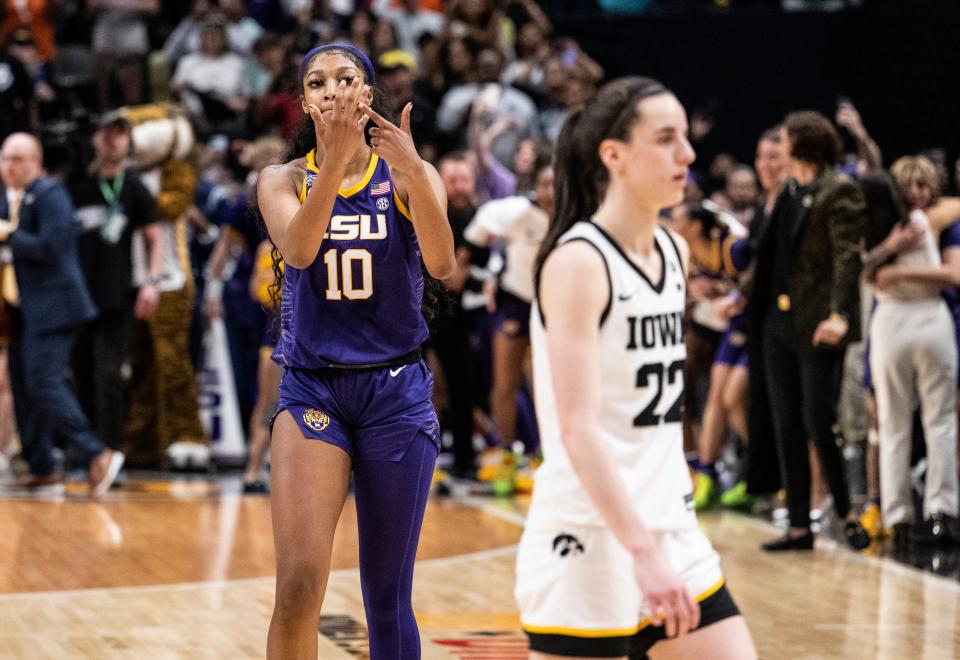
Angel Reese of the LSU Lady Tigers and Caitlin Clark of the Iowa Hawkeyes towards the end of the 2023 NCAA Women’s Basketball Tournament National Championship on April 2, 2023
Ben Solomon/Getty Images
While the arena erupted with cheers and emotion following LSU’s win, online reactions to Reese’s celebratory gestures overtook social media, attacking the 20-year-old player with accusations of “taunting,” lacking sportsmanship and “class.” Barstool Sports founder Dave Portnoy shared a Tweet calling Reese a “classless piece of shit,” while sports commentator Keith Olbermann quote tweeted a video of Reese with the remark: “What a f*cking idiot.”
But the reactions to Clark’s use of the “you can’t see me gesture” on March 26 were drastically different. On Twitter, Clark was called a “competitive, intelligent, and entertaining player,” a “stone cold killer,” and one fan even called the hand motion the “best move of the game.” Filtering through even more comments on social media, it is blatantly noticeable that the majority of last night’s comments opposing Reese are from white people — sports fans and sports media personalities alike — with no shame in displaying a clear racial bias and upholding a racist double standard.
Ahead of the LSU and Iowa matchup, the racial narrative being crafted around a majority Black team facing off with a majority white team was apparent. In a tweet, one person depicted “a tale of two cultures,” pairing a video of the Hawkeyes in a group sing-along to High School Musical 2’s “Gotta Go My Own Way,” while the Lady Tigers are seen turning up, jumping and rapping Lil Boosie’s “Set It Off.” The missing context? Iowa was warming up and LSU was celebrating advancing to the championship game.
However, Reese was not swayed by the racially-tinged commentary and she was not at all apologetic. “All year I was critiqued about who I was,” she said in her post-game interview following the championship win “I don’t fit the narrative. I don’t fit in the box that y’all want me to be in. I’m too hood, I’m too ghetto, y’all told me that all year. But when other people do it y’all don’t say nothing. So this was for the girls that look like me, that’s gonna speak up on what they believe in, that’s unapologetically you.”
The Bayou Barbie who hails from Baltimore, Maryland, attributes her playing style and her authenticity to her hometown: “I’m from Baltimore where you hoop outside and you trash talk.” As any athlete or sports fan would tell you, competitive trash talk is ingrained in the culture of sports — especially basketball. There are lengthy articles by sports media outlets that celebrate and rank the best, “most savage” trash talkers in basketball. As noted by Bleacher Report’s Patrick Buscone in 2013, “trash-talk has been around longer than the three-point line.” Trash talk is not only a mental strategy long employed by the best athletes in the game, but also one of the most entertaining aspects of the sport. Policing the trash talk of one of the most promising young players in college basketball today is nothing but racism and misogynoir disguised as a respect for good sportsmanship.
Reese, who was crowned the NCAA’s 2023 Most Outstanding Player, said that showing up as her full self and winning the championship was “bigger” than her. And it is. Too often Black women are expected to shrink themselves, not be too proud, win humbly, and lose graciously. The standards of sportsmanship and etiquette are dictated by the very people it is meant to protect, in turn allowing goalposts to be moved and Black women to be vilified for the same actions as their white counterparts.
As seen last night, commentators grasped at straws in an attempt to differentiate Clark’s gesture in comparison to Reese’s — tying in technicalities to support their racially charged comments, stating that Reese “followed” Clark around the court for 15-20 seconds, while Clark kept her distance from Van Lith. The latter’s actions didn’t seem to constitute “taunting,” though the videos of Clark and Van Lith’s exchange show the two competitors closely crossing paths.
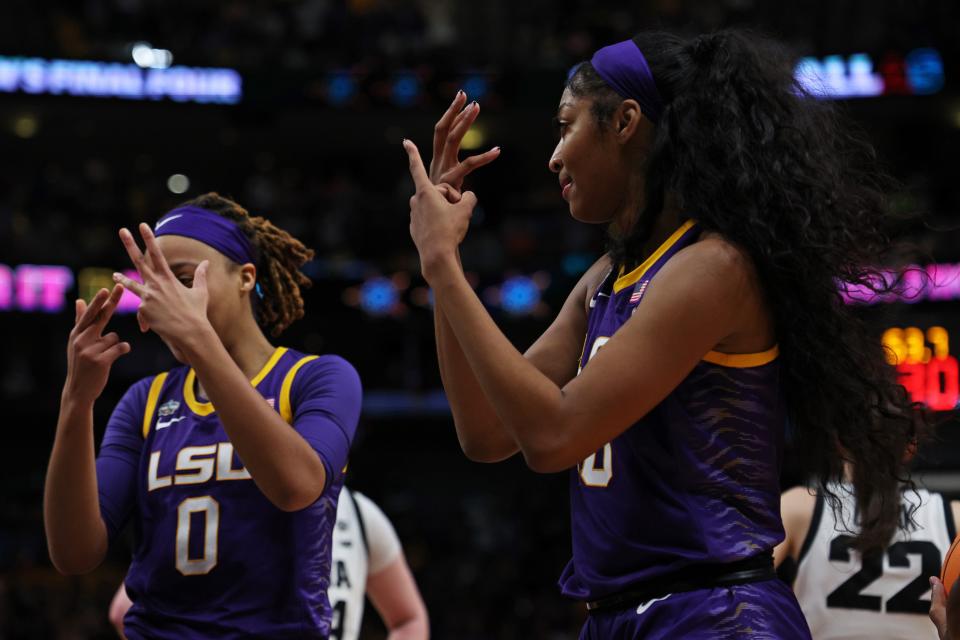
LaDazhia Williams, #0, and Angel Reese, #10, reacting after defeating the Iowa Hawkeyes 102-85 during the 2023 NCAA Women’s Basketball Tournament National Championship
Tom Pennington/Getty Images
Caitlin Clark is undeniably one of the most talented players to grace women’s college basketball, but despite her talent, she is also the representation of the undying efforts to protect white womanhood at all costs. In and out of sports, across nearly every societal landscape, white women are often framed as delicate and innocent, while Black women are painted as angry and aggressive. Clark’s wave wasn’t the only time the Iowa stand-out boasted or acted less than sportsmanlike, and given the show she put on it was “warranted” — and applauded. In an interview with SiriusXM College Sports Radio, Clark said that trash talk has always been a part of her game. “I’ve always been someone who plays with a lot of passion and a lot of motion. You’re going to know if I’m really happy or really mad,” said Clark of her playing style. “Women should be allowed to play with that type of passion and that type of motion”, noting that her raw display of emotion has contributed to her caliber.
Reese, who transferred to LSU in 2022, led her team with a reworked roster and new additions in Alexis Morris, Flau’Jae Johnson, Jasmine Carson. To no surprise, Reese’s leadership and talent is still not enough to shield her from baseless, racist attacks and angry Black woman tropes, and unfortunately, she is not alone in that.
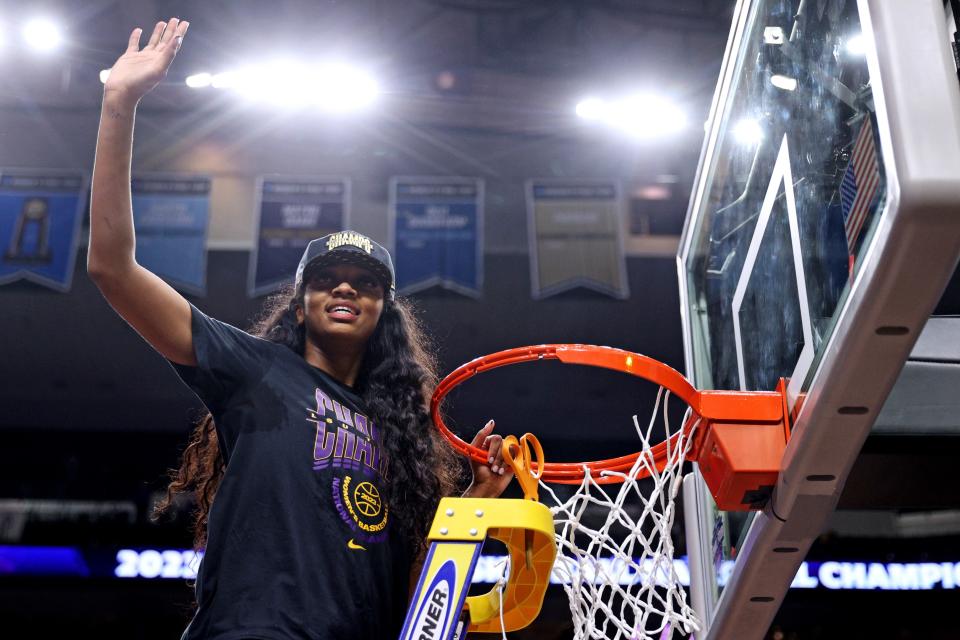
Angel Reese cuts down a piece of net after defeating the Iowa Hawkeyes
Maddie Meyer/Getty Images
Black women athletes like Serena Williams, Sha’Carri Richardson, Naomi Osaka, and Simone Biles join Reese in this experience. Whether it’s for showing big emotion in wake of a tough loss or a well-earned win, exploring other ventures, wearing colorful hair and long nails, or taking a break to tend to one’s mental health and body, Black women aren’t afforded the space to be themselves or heal themselves. Greatest athlete of all time, most outstanding player, most decorated athlete ever… it doesn’t matter. Black women athletes are constantly up against harsher critiques and systems that throw them to the wolves for existing, whether they excel or not.
In addition to the media’s penchant for portraying Black women athletes as aggressive, masculine, and unable to control their emotions, there are also people within the sport who contribute to the narrative. Earlier in the week, Iowa’s coach Lisa Bolder equated the rebounding of their March 31st opponent, the predominantly-Black South Carolina Gamecocks, to “going to a bar fight,” chalking her comment up to her favor of tongue-in-cheek references. Nonetheless, it is those very comments that are a mainstay in perpetuating misogynoir and tropes that are harmful to Black women, on and off the court.
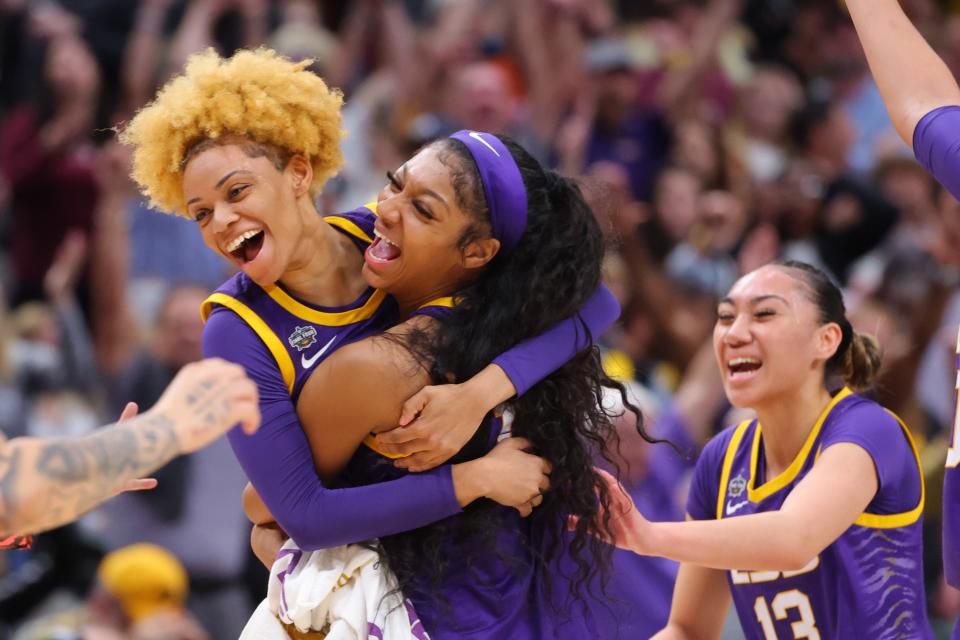
Jasmine Carson, #2, and Angel Reese celebrating during the 2023 NCAA Women’s Basketball Tournament National Championship
C. Morgan Engel/Getty Images
After South Carolina’s loss to Iowa, on the heels of an undefeated season, coach Dawn Staley took the time during her post-game interview to defend her team and their playing style. “We’re not bar fighters. We’re not thugs. We’re not monkeys. We’re not street fighters,” the longtime coach said in response to the media’s portrayal of the Gamecocks. “It just confirms what we already know. So watch what you say when you’re in public and you’re talking about my team in particular because it’s wrong.” Staley called for the media to not to judge her team by the color of their skin and to get to know them like they care to get to know other players of other races.
Despite a social media storm of racism and double standards, Angel Reese and the rest of the LSU women’s basketball team are “happy.” They are, deservedly, celebrating their monumental win with no regard for outside opinions on their decorum. Tuning out the noise from berating onlookers who encourage her to show up as anyone other than herself, Reese tweeted out two messages shortly after the championship game complete with a kissy emoji and halo-ed smiley: “I LOVE BEING A BLACK QUEEN,” “And no I’M NOT KEEPING IT CUTE.” And she shouldn’t. It should not be expected of Reese to meet disparaging comments about her character, background, appearance, or talent with “grace” and “class.” She should be able to walk with her head held high, lashes done to perfection, a crown atop her 30-inch curly hair, with a new ring on her French-tipped finger to replace the marker manifestation that she and her team made a reality — and if it’s up to her, she will.
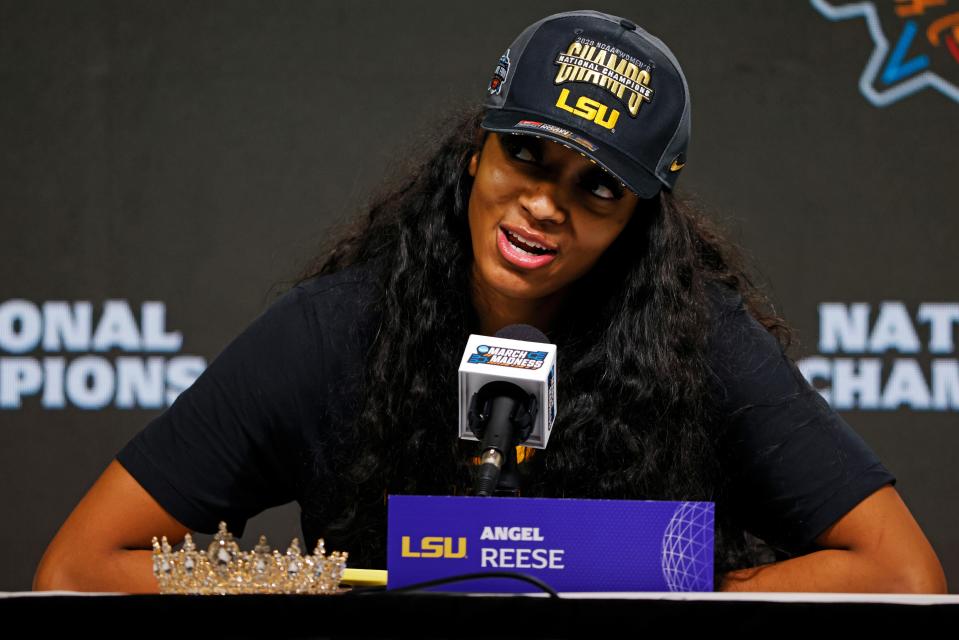
Angel Reese during the post-championship press conference
Ron Jenkins/Getty Images
Originally Appeared on Teen Vogue
Want more great Culture stories from Teen Vogue? Check these out:

